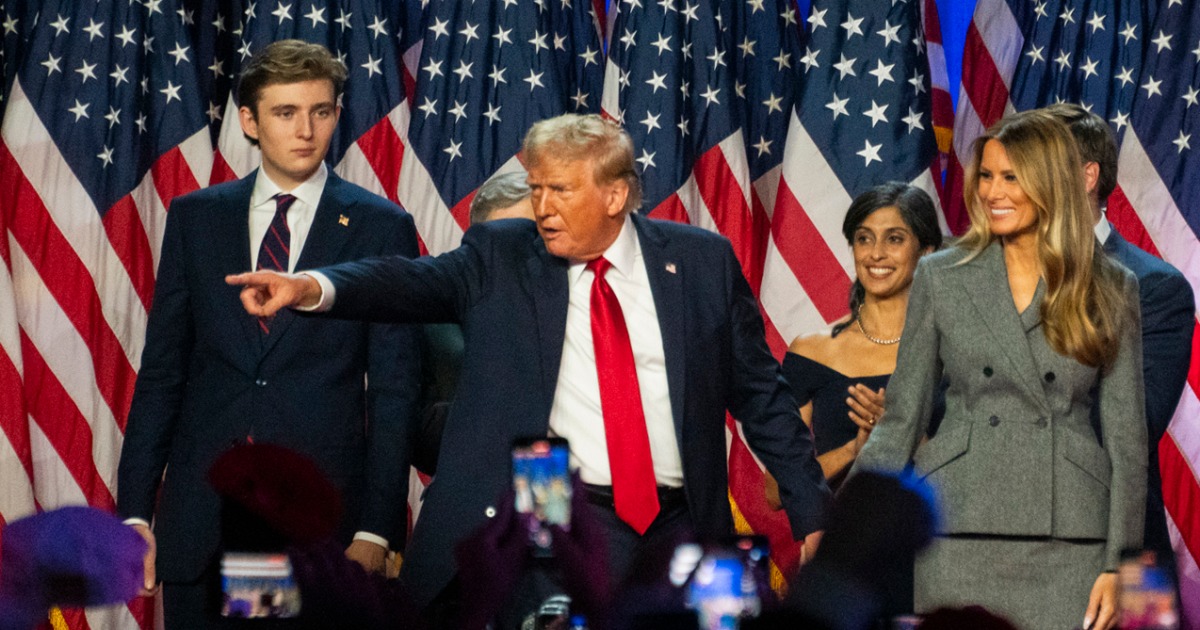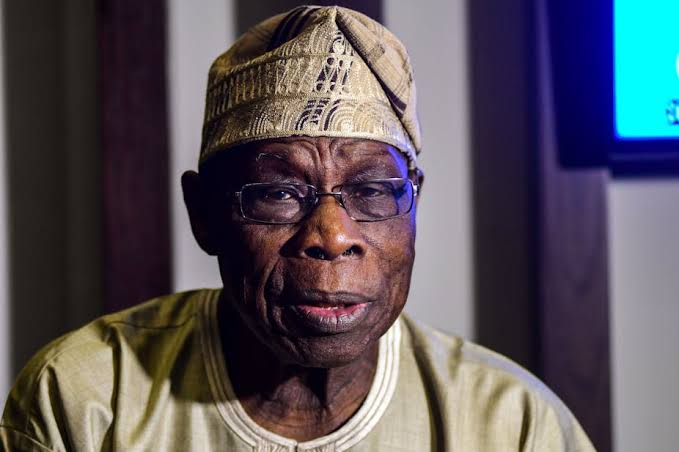2024 was yet another ‘change’ election: From the Politics Desk

Politics tamfitronics
Welcome to the online version ofFrom the Politics Deskan evening newsletter that brings you the NBC News Politics team’s latest reporting and analysis from the campaign trail, the White House and Capitol Hill.
In today’s edition, senior political editor Mark Murray breaks down how 2024 was the sixth “change” election in a row as voter dissatisfaction with the direction of the country remains high. Plus, we examine how the Senate Republican leadership elections are remerging as a MAGA proxy fight.
Sign up to receive this newsletter in your inbox every weekday here.
2024 was yet another ‘change’ election
By Mark Murray
The 2024 elections represented more than Donald Trump’s White House victory, Republicans’ winning a majority in the Senate, and the GOP being in the driver’s seat to keep the House (though control of that chamber is still up for grabs).
They culminated in the nation’s sixth straight “change” election, in which either the White House or at least one chamber of Congress switched party control. Just look at this history of recent presidential and midterm election cycles:
- 2014: Republicans win the Senate
- 2016: Republicans win the White House
- 2018: Democrats win the House
- 2020: Democrats win the White House and the Senate
- 2022: Republicans win the House
- 2024: Republicans win the White House and the Senate
In fact, you have to go back to the 2012 cycle for the last “status quo” election, where the White House and the two chambers of Congress didn’t change party hands.
Presidential ping-pong
There’s also this trend: Control of the White House has now flipped in each of the past three presidential elections (Barack Obama to Trump to Joe Biden and back to Trump).
We haven’t seen that kind of presidential party ping-pong since the 1880s and 1890s, given that the 20th century and the beginning of the 21st century were defined by multi-term stretches of either Democratic or Republican presidents.
There are two explanations for all of this change. The first is the simple math: The nation is so divided politically that all it takes is a shift of tens of thousands of votes in key states, or just a few congressional seats, to alter the balance of power.
The second — and larger — explanation is the consistent 60% to 70% of voters over the last decade-plus who believe the country is headed in the wrong direction, according to NBC News polling.
With the exceptions of Obama’s elections in 2008 and 2012 and Trump’s first victory in 2016, a supermajority of voters have been dissatisfied with the nation’s direction.
Voters saw Trump as the change agent
That sentiment was evident in the 2024 election, with a whopping 73% of voters saying they were angry or dissatisfied with the way things were going in the country, the NBC News Exit Poll found. Those voters broke for Trump over Kamala Harris 62% to 36%.
What’s more, a combined 68% of voters in the exit poll described the economy as “not so good” or “poor,” despite statistical evidence of a growing economy. Trump won those voters, 70% to 28%.
And Trump was seen as the change agent in the race. According to the exit poll, 28% of voters said bringing “needed change” was the candidate quality that mattered the most to them (behind “has the ability to lead” and ahead of “has good judgment” and “cares about people like me”).
Trump won those “change” voters by 50 points, 74% to 24%.
The question headed into the inauguration in January: Can his second term break the cycle of American voters wanting change?
Senate Republican leadership fight becomes a proxy for MAGA influence under Trump
By Sahil Kapur, Matt Dixon and Julie Tsirkin
A looming battle among Senate Republicans over who to pick as their next majority leader is turning into an early test of how much power President-elect Donald Trump’s “MAGA” movement will exert in his second term.
The three-way fight to replace outgoing Senate Republican leader Mitch McConnell of Kentucky pits Senate Minority Whip John Thune of South Dakota against Sen. John Cornyn of Texas, a former McConnell deputy, and underdog candidate Sen. Rick Scott of Florida.
The battle will gauge the staying power of long-serving senior Republicans grounded in an institutionalist view of the Senate, like Thune and Cornyn, against an emboldened pro-Trump wing looking to smash any vestiges of the old GOP as he returns to power.
Scott’s seeking to claim the latter mantle and told NBC News in an interview Monday that he’ll push “the Trump agenda” if elected.
“I talk to all my colleagues, and they are clear what they want and know we need to change. They want to be treated as equals, want to be part of a team. They know I have a great relationship with Trump and the speaker of the House, and I am a business guy. And I will get the Trump agenda done,” Scott said.
MAGA influencers online have started an online pressure campaign seeking to sink the current and former McConnell deputies — and boost Scott — ahead of a candidate forum Tuesday and an expected closed-door election Wednesday.
But it’s far from clear that the campaign will succeed. The Senate is a famously insular body that is relatively detached from populist fervor, giving members six-year terms and usually operating on seniority. It would be unusual for Scott to leapfrog two colleagues who have served much longer, cultivated deeper relationships and have each paid their dues in pursuit of the job.
Most importantly, the election will be held by secret ballot. Unlike votes on legislation and nominations — as well as the vote for speaker of the House — votes for Senate leadership are anonymous. That means relationships will be paramount and the online pro-Trump army won’t know how members voted.
Most notably, Trump himself hasn’t weighed in. But he has made one public demand: The next GOP leader should support his ability to make “recess appointments” to temporarily install personnel without Senate confirmations.
Read more →
Trump transition watch
- Trump selected Rep. Elise Stefanik of New York, the House Republican Conference chair, to serve as ambassador to the United Nations.
- He also chose former Rep. Lee Zeldin of New York to oversee the Environmental Protection Agency.
- Trump announced that Tom Homan, the former acting director of U.S. Immigration and Customs Enforcementwho backed his controversial “zero tolerance” policy, will be his administration’s “border czar.”
- And Stephen Miller is expected to be named as Trump’s deputy chief of staff for policy at the White House.
Politics tamfitronics 🗞️ Today’s top stories
- 🗺 Realigning the map: Trump managed to engineer a near-wholesale rightward shift in the electorate this year in ways he couldn’t in 2016 or 2020, blowing up long-held narratives in both parties about how Americans vote. Read more →
- 🧹 Clean sweep: NBC News projected Trump as the winner in Arizona over the weekend, meaning he defeated Harris in all seven core battleground states. Read more →
- 💸 Final price tag: Nearly $11 billion was spent on ads during the 2024 election, according to AdImpact, a new record and a substantial increase from the $9 billion spent in 2020. Read more →
- 👀 Airing of grievances: Trump’s win has sparked fresh concerns among his critics that he may enter office looking for retribution. Read more →
- ⚖️ Checks and balances: Trump’s ambitious agenda could face pushback from an institution he has done much to shape: the Supreme Court. Read more →
- 📈 Expectations vs. reality: As a candidate, Trump promised to relieve consumers of high interest rates. But as president, doing so will likely be a slow process largely outside of his control. Read more →
That’s all from the Politics Desk for now. If you have feedback — likes or dislikes — email us at [email protected]
And if you’re a fan, please share with everyone and anyone. They can sign up here.
Discover more from Tamfis Nigeria Lmited
Subscribe to get the latest posts sent to your email.



 Hot Deals
Hot Deals Shopfinish
Shopfinish Shop
Shop Appliances
Appliances Babies & Kids
Babies & Kids Best Selling
Best Selling Books
Books Consumer Electronics
Consumer Electronics Furniture
Furniture Home & Kitchen
Home & Kitchen Jewelry
Jewelry Luxury & Beauty
Luxury & Beauty Shoes
Shoes Training & Certifications
Training & Certifications Wears & Clothings
Wears & Clothings















